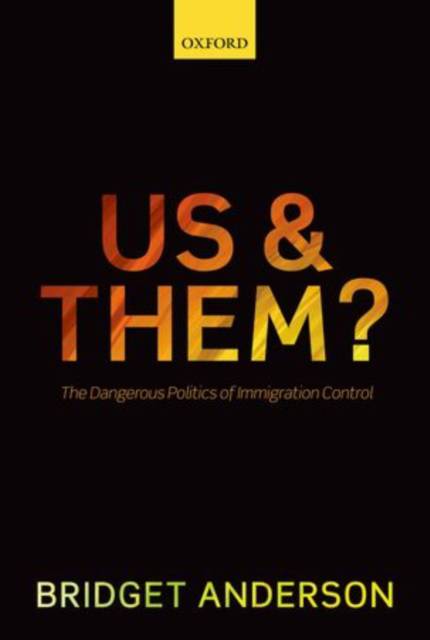
- Retrait gratuit dans votre magasin Club
- 7.000.000 titres dans notre catalogue
- Payer en toute sécurité
- Toujours un magasin près de chez vous
- Retrait gratuit dans votre magasin Club
- 7.000.000 titres dans notre catalogue
- Payer en toute sécurité
- Toujours un magasin près de chez vous
183,45 €
+ 366 points
Format
Description
Us and Them? explores the distinction between migrant and citizen through using the concept of 'the community of value'. The community of value is comprised of Good Citizens and is defined from outside by the Non-Citizen and from the inside by the Failed Citizen, that is figures like the benefit scrounger, the criminal, the teenage mother etc. While Failed Citizens and Non-Citizens are often strongly differentiated, the book argues that it is analytically and politically productive to consider them together. Judgments about who counts as skilled, what is a good marriage, who is suitable for citizenship, and what sort of enforcement is acceptable against 'illegals', affect citizens as well as migrants. Rather than simple competitors for the privileges of membership, citizens and migrants define each other through sets of relations that shift and are not straightforward binaries. The first two chapters on vagrancy and on Empire historicise migration management by linking it to
attempts to control the mobility of the poor. The following three chapters map and interrogate the concept of the 'national labour market' and UK immigration and citizenship policies examining how they work within public debate to produce 'us and them'. Chapters 6 and 7 go on to discuss the challenges posed by enforcement and deportation, and the attempt to make this compatible with liberalism through anti-trafficking policies. It ends with a case study of domestic labour as exemplifying the ways in which all the issues outlined above come together in the lives of migrants and their employers.
attempts to control the mobility of the poor. The following three chapters map and interrogate the concept of the 'national labour market' and UK immigration and citizenship policies examining how they work within public debate to produce 'us and them'. Chapters 6 and 7 go on to discuss the challenges posed by enforcement and deportation, and the attempt to make this compatible with liberalism through anti-trafficking policies. It ends with a case study of domestic labour as exemplifying the ways in which all the issues outlined above come together in the lives of migrants and their employers.
Spécifications
Parties prenantes
- Auteur(s) :
- Editeur:
Contenu
- Nombre de pages :
- 264
- Langue:
- Anglais
Caractéristiques
- EAN:
- 9780199691593
- Date de parution :
- 19-05-13
- Format:
- Livre relié
- Format numérique:
- Ongenaaid / garenloos gebonden
- Dimensions :
- 234 mm x 152 mm
- Poids :
- 482 g







